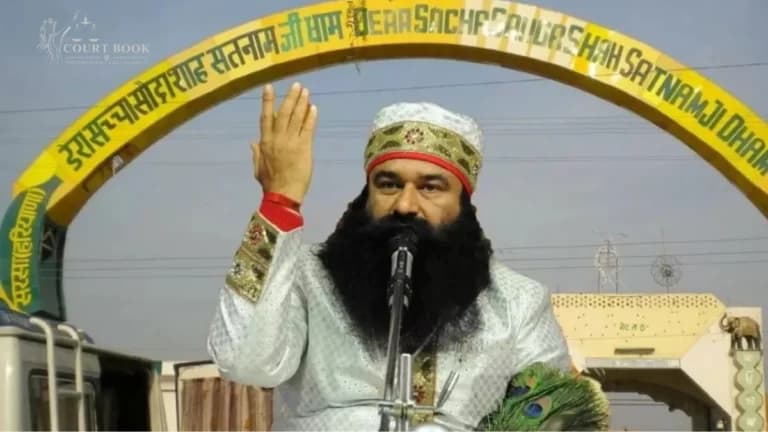The Supreme Court has declined Dera Sacha Sauda leader Gurmeet Ram Rahim's request to pause the ongoing trials related to the 2015 sacrilege incidents in Punjab. A bench comprising Justices BR Gavai and K Vinod Chandran presided over the hearing, following Ram Rahim's application to lift the stay imposed by the Punjab and Haryana High Court, which had previously halted the trial proceedings. Despite his counsel's arguments, the bench refused to grant interim relief.
Senior Advocate Mukul Rohatgi, representing Ram Rahim, contended that the Supreme Court's stay on the High Court's order effectively favored the state's appeal. He highlighted that the state's petition challenged a High Court reference order that had directed the matter to a larger bench.Rohatgi argued that the Central Bureau of Investigation (CBI) had filed a closure report, but the state government, dissatisfied with this outcome, withdrew the CBI's consent and continued its own investigation. He emphasized the legal question of whether the state could retract its consent for a CBI probe and suggested maintaining the status quo until this issue was resolved.
Read Also:- Kerala Court Issues Non-Bailable Warrant Against Baba Ramdev in Misleading Ads Case
Opposing this stance, Punjab Advocate General Gurminder Singh noted that the interim stay was issued in the presence of both parties. He requested time to file a rejoinder and urged the court to schedule a hearing for the main petition.
Rohatgi further alleged that the Punjab police had coerced an extrajudicial confession from an individual unrelated to the sacrilege cases, which could prejudice Ram Rahim. He pleaded for a stay on the trial until the main petition was addressed or for the suspension of the order staying the High Court's directive.
Justice Gavai inquired about the status of the chargesheets, to which the Advocate General responded that three chargesheets had been filed since 2022 and that the matter remained sub judice. He also referenced previous legal proceedings where the state's withdrawal of CBI consent was upheld. The court has scheduled the next hearing for March 18 to deliberate on the main petition.
Read Also:- Delhi High Court Asks NIA to Respond to MP Engineer Rashid’s Interim Bail Plea in UAPA Case
Background of the 2015 Sacrilege Incidents
The controversy stems from a series of desecration incidents in Punjab, beginning with the theft of a Guru Granth Sahib copy from a gurdwara in Burj Jawahar Singh Wala village in June 2015. Subsequent months saw the appearance of handwritten sacrilegious posters and the discovery of torn pages of the holy book in various villages, leading to widespread protests. The police's response resulted in the deaths of two protesters, escalating social and political tensions.
Initially, the investigation was handed over to the CBI by the then coalition government of Shiromani Akali Dal and Bharatiya Janata Party.
In June 2019, the CBI filed a closure report citing a lack of incriminating evidence against Dera followers. However, both the ruling Congress and the opposition Shiromani Akali Dal rejected this report. Subsequently, the Punjab government withdrew the CBI's consent and assigned the cases to a Special Investigation Team (SIT) of the state police. The SIT's findings diverged from the CBI's, naming several Dera followers and Gurmeet Ram Rahim as key conspirators in the sacrilege incidents.
In 2021, Ram Rahim petitioned the High Court for a fair investigation into the sacrilege incidents, challenging the state's withdrawal of CBI consent and seeking directives for the CBI to continue its probe. In March 2024, the High Court referred the matter to a larger bench to determine the legality of the state's withdrawal of consent and stayed proceedings against Ram Rahim. The Punjab government then approached the Supreme Court, which, in October 2024, stayed the High Court's order, allowing the trial to proceed.















